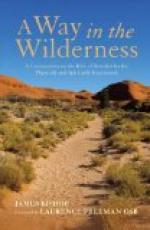One day, while lying still in the underbrush watching a wood mouse, Killooleet, a fine male bird and a perfect singer, came and sang on a branch just over my head, not noticing me. Then I discovered that there is a trill, a tiny grace note or yodel, at the end of his second note. I listened carefully to other singers, as close as I could get, and found that it is always there, and is the one difficult part of the song. You must be very close to the bird to appreciate the beauty of this little yodel; for ten feet away it sounds like a faint cluck interrupting the flow of the third note; and a little farther away you cannot hear it at all.
[Illustration: Killooleet]
Whatever its object, Killooleet regards this as the indispensable part of his song, and never goes on to the third note unless he gets the second perfectly. That accounts for the many times when one hears only the first two notes. That accounts also for the occasional prolonged trill which one hears; for when a young bird has tried many times for his grace note without success, and then gets it unexpectedly, he is so pleased with himself that he forgets he is not Whippoorwill, who tries to sing as long as the brook without stopping, and so keeps up the final lillooleet-lillooleet as long as he has an atom of breath left to do it with.
But of all the Killooleets,—and there were many that I soon recognized, either by their songs, or by some peculiarity in their striped caps or brown jackets,—the most interesting was the one who first perched on my ridgepole and bade me welcome to his camping ground. I soon learned to distinguish him easily; his cap was very bright, and his white cravat very full, and his song never stopped at the second note, for he had mastered the trill perfectly. Then, too, he was more friendly and fearless than all the others. The morning after our arrival (it was better weather, as Simmo and Killooleet had predicted) we were eating breakfast by the fire, when he lit on the ground close by, and turned his head sidewise to look at us curiously. I tossed him a big crumb, which made him run away in fright; but when he thought we were not looking he stole back, touched, tasted, ate the whole of it. And when I threw him another crumb, he hopped to meet it.
After that he came regularly to meals, and would look critically over the tin plate which I placed at my feet, and pick and choose daintily from the cracker and trout and bacon and porridge which I offered him. Soon he began to take bits away with him, and I could hear him, just inside the fringe of underbrush, persuading his mate to come too and share his plate. But she was much shyer than he; it was several days before I noticed her flitting in and out of the shadowy underbrush; and when I tossed her the first crumb, she flew away in a terrible fright. Gradually, however, Killooleet persuaded her that we were kindly, and she came often to meals; but she would never come near, to eat from my tin plate, till after I had gone away.




